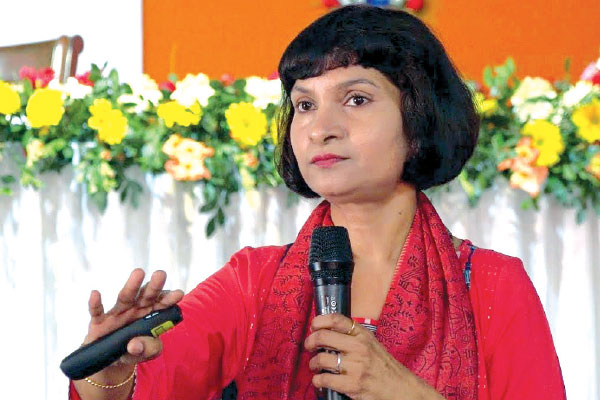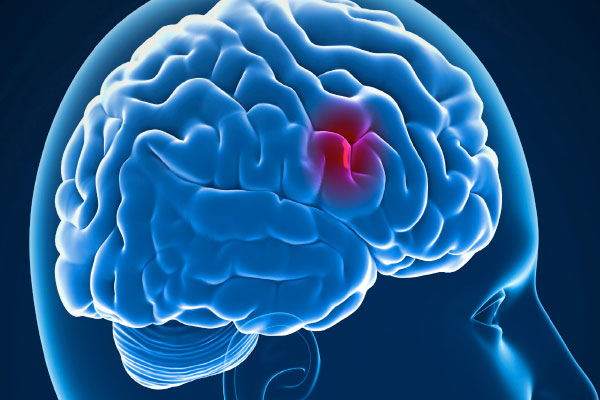
 As per the Indian Council of Medical Research, every 20 seconds somebody is having stroke. Every two-minute somebody is dying of stroke in India. Strokes are no longer limited to old people. It can affect anyone irrespective of the age. It is a time- sensitive disease. Time is brain, said Dr Padma Srivastava, noted Professor of Neurology at AIIMS, New Delhi, recently.
As per the Indian Council of Medical Research, every 20 seconds somebody is having stroke. Every two-minute somebody is dying of stroke in India. Strokes are no longer limited to old people. It can affect anyone irrespective of the age. It is a time- sensitive disease. Time is brain, said Dr Padma Srivastava, noted Professor of Neurology at AIIMS, New Delhi, recently.
Dr Srivastava, who has a primary area of interest in stroke, vascular dementia and multiple sclerosis besides actively participating in the Epilepsy Program at AIIMS, was speaking recently at the 4th Healthcare Summit in Jaipur.

Considering the challenges being faced in the country in terms of communicable and non- communicable diseases, it is required that local physicians must be trained to tackle emergency cases, she said.

Many States have inline-block facility. Underscoring the need to train local physician to make them adept in tackling emergency situation, the neurology professor said, “It is not possible to tackle all brain attack patients by neurologists, as we have very few such experts; 2,000 neurologists for 1.2 billion population.”

“We need someone who can provide golden-hour treatment in emergency at the same place or nearby where a patient resides. We need to breach these gaps. We need to have standard operating protocols,” she said.

 There has been a massive shift in diseases’ type i.e. most of the people used to suffer with Malaria, Diarrhoea and TB 20-30 years ago. But today that has been largely replaced by cancers, heart attacks, brain attacks, strokes, and kidney diseases, Dr Srivastava said.
There has been a massive shift in diseases’ type i.e. most of the people used to suffer with Malaria, Diarrhoea and TB 20-30 years ago. But today that has been largely replaced by cancers, heart attacks, brain attacks, strokes, and kidney diseases, Dr Srivastava said.
Speaking about what needs to be done to strengthen existing healthcare delivery model, the neurology professor at AIIMS, Delhi, said, “Healthcare needs to be made optimal — available, accessible and affordable. The Government has started Ayushman Bharat with the similar strategy. We need awareness, sponsored response system. For public healthcare point of view, we need ambulance facilities. Rajasthan has 108, through which one can call an ambulance in emergency situation.”
Sharing the details of latest initiative by the Himachal Government, Dr Srivastava said: “In Himachal Pradesh, 10 districts have functional CT scan facility. We have trained the district health personnel to tackle emergency cases. They stay on call always. They manage all diseases where quick response is needed. We got the Government of Himachal involved and started trainer training programmes being called telestroke.”
“We have made telestroke facility available at all the district centres in the State. Brain stroke patient gets his CT scan done, WhatsApp all the images and we guide local physician to provide the medicine to dissolve the clot.
“It is very simple and effective way. We have treated many patients using the technology. We have training programmes in other States like Uttar Pradesh. Patients are being thromblysed in remote areas i.e Raibareli in UP and Una in Himachal,” she added.
Stressing on the need for people to pay extra attention on their health, she said, “Everybody after the age of 30 should get their BP, blood sugar checked on regular interval. Everything is happening among young people now.”
Underlining the importance of technology, Dr Srivastava said, “One can have stroke risk map in his smart phones. It will help you to know risk factor and how to go about it. Technology must be harnessed to get things facilitated. Local physicians, ASHAs, para-medical staff must be empowered to strengthen healthcare delivery system.”
Be a part of Elets Collaborative Initiatives. Join Us for Upcoming Events and explore business opportunities. Like us on Facebook , connect with us on LinkedIn and follow us on Twitter , Instagram.
"Exciting news! Elets technomedia is now on WhatsApp Channels Subscribe today by clicking the link and stay updated with the latest insights!" Click here!
















